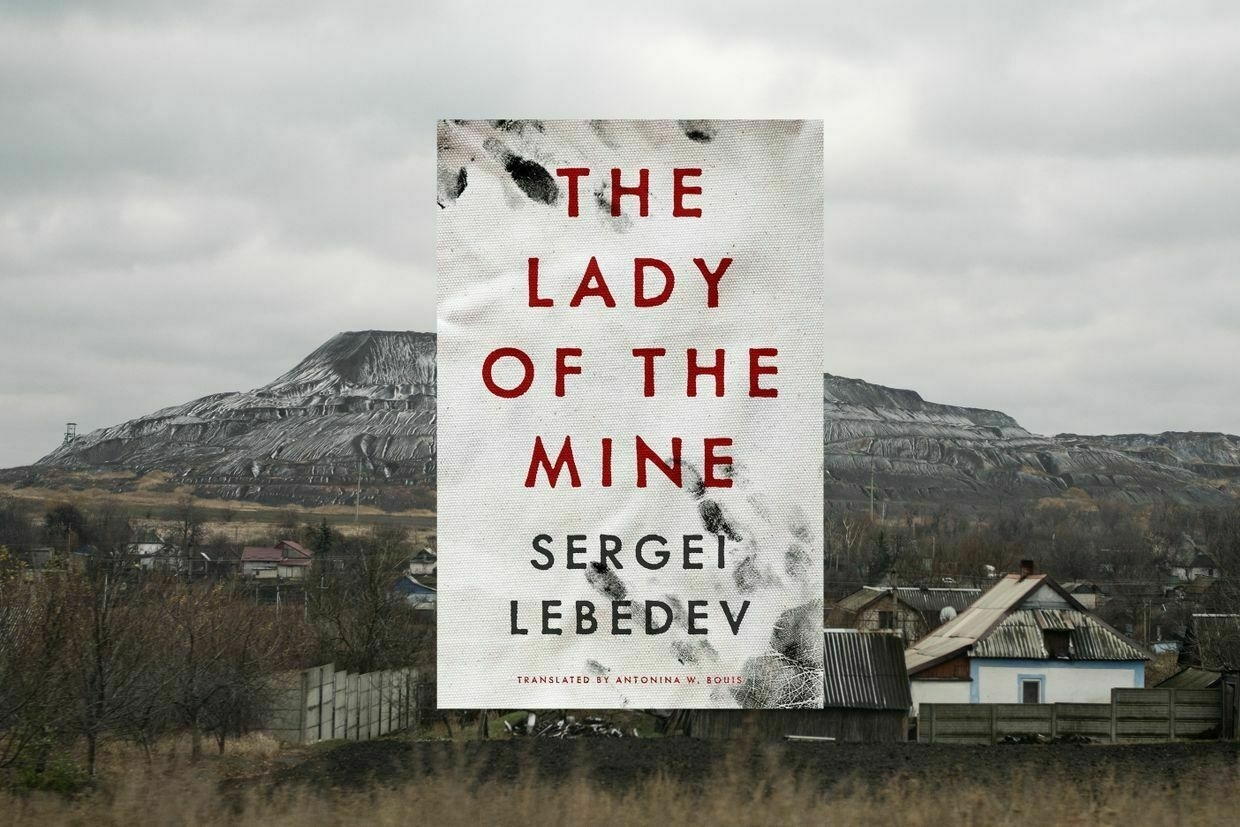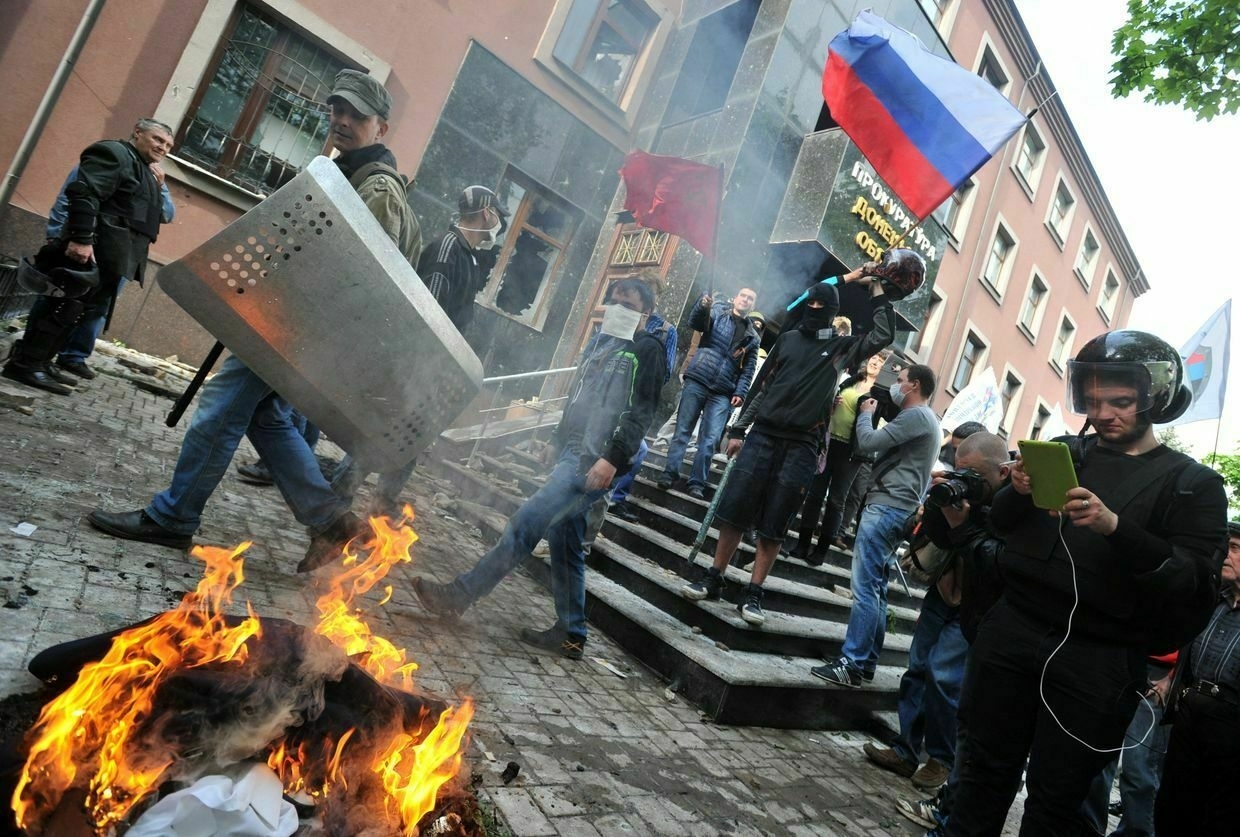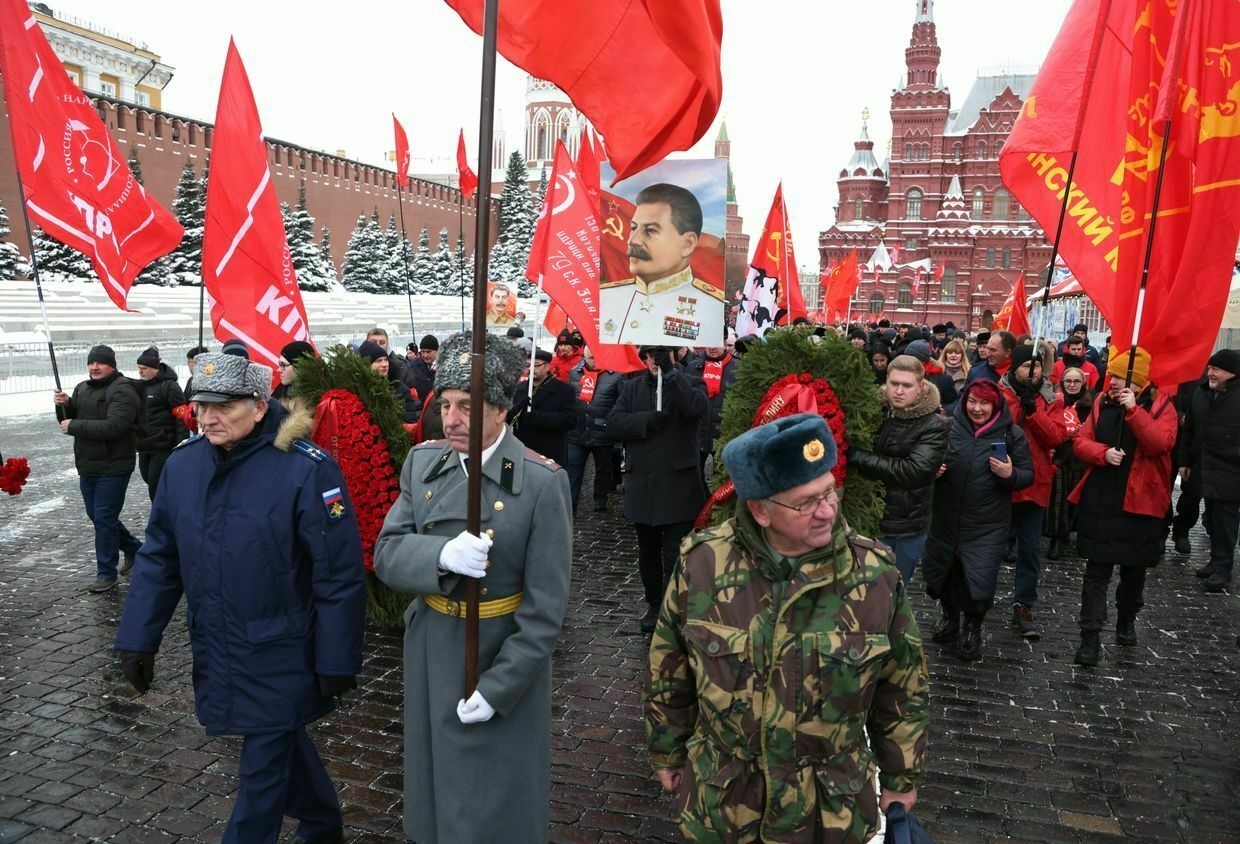
Over the past three years of Russia’s full-scale war against Ukraine, the very mention of a Russian novel or film set in Ukraine has understandably evoked trepidation among Ukrainians and Ukraine’s supporters.
Despite Russia’s relentless missile and drone attacks on Ukrainian cities and the staggering number of documented war crimes committed by Russian troops on Ukrainian soil, a number of Russian artists have used their international platforms not to confront this harsh reality but to defend Russian literature from so-called “cancellation” or to even try and humanize the soldiers waging war in Ukraine. By doing so, they often appear detached from — or even complicit in — the suffering committed in their country’s name.
Exiled Russian author Sergei Lebedev’s latest novel, “The Lady of the Mine,” set against the backdrop of Russia’s 2014 invasion of Ukraine’s Donetsk and Luhansk oblasts, offers a glimpse of what it might look like if the Russian opposition were to actually confront their country’s imperialist legacy. The novel underscores the fact that any meaningful project of decolonizing Russian culture must begin from within — specifically, among the country’s own anti-war intellectuals. Absent this internal reckoning, the rhetoric of decolonization risks remaining little more than a gesture of wishful thinking.
Before he embarked on his literary career, Lebedev worked on geological expeditions in Russia’s far North, where some of the Soviet Union’s most brutal gulags were located, and also worked as a journalist. Having moved to Germany six years ago for professional reasons, he remains outside of Russia given his vocal anti-war stance.
In “The Lady of the Mine,” eastern Ukraine at the start of the war in 2014 serves as a sort of palimpsest where war, history, and memory collide with the ghosts of Russian imperial ambition. Lebedev attempts an exorcism of Russia’s colonial myths, particularly the Soviet “miner’s myth” of Donbas which has long been manipulated by Russian state-controlled propaganda to “justify” their country’s aggression beyond Russia’s borders.
Stripping away illusions of industrial glory, Lebedev reveals the Soviet narrative about Donbas not as some fabled land but as a relentless vortex, unyielding and insatiable. As the novel unfolds, it becomes clear that the road to conquest only leads a country into the abyss.
 The Kyiv IndependentKate Tsurkan
The Kyiv IndependentKate Tsurkan
At the novel’s center is Zhanna, who abandons her university studies in Kharkiv to care for her dying mother Marianna. The cancer that consumes Marianna’s body becomes synonymous with the Russian propaganda she watches on television — as the former ravages her body, the latter erodes her mind.
Zhanna is horrified by the Russian propagandists on her mother’s television shouting about a so-called “Banderite coup” in Kyiv — their effort to discredit the Revolution of Dignity — but “her mother seemed to understand, and, being on the same wavelength of madness, listened with dark and cruel attention.” The pro-Russian talking points on the television screen were “pouring into her mother’s consciousness, destroying the usual connections of things and phenomena and building new ones: phantasmagoric and sinister.”
The “phantasmagoric and sinister” includes the return of her neighbor Valentine, known as “Valet,” who was exiled to Russia years ago. The Russian military sends Valet and a handful of others to his hometown to help orchestrate a staged uprising, fabricating the illusion pushed by pro-Russian talking heads that the people of Donetsk Oblast genuinely support Russia’s annexation. His cover story is simple: he has come back to visit his mother.

Yet Valet’s return is also deeply personal. Years earlier, he was forced to leave Ukraine for his relatives in Russia because Marianna, viewed by the townspeople as the mine’s enigmatic guardian, recognized him as a murderer, his guilt betrayed by specks of blood on his clothes and a gold tooth in his pocket that could have only come from the town’s mine. Now, back in Donetsk Oblast, Valet sees an opportunity for revenge by preying on Marianna’s young and vulnerable daughter.
The town’s mine stands as both a grave and a silent witness, its buried secrets forming the novel’s dark undercurrent. According to local lore, the sealed-off mine shaft holds the remains of Jews executed by the Nazis during World War II. Yet, through the voice of the Engineer — the long-dead architect of the mine, roused from death by Russia’s full-scale war against Ukraine — another dark truth emerges: the Soviets never exhumed the bodies because beneath them lie the remnants of older atrocities, evidence of Russian crimes long concealed.
“Under us lie Red Army prisoners shot by the Germans. Beneath them, people shot by the Bolsheviks when the Red Army was retreating, and the prisoners of Soviet prisons. Under them, people executed in the Civil War by advancing and retreating troops, Whites, Reds, Greens, random people, hostages. Below them, the murdered strikers of the first revolution, in 1905. Stratigraphy. The tiers. Unity in fossilization,” the Engineer explains.
“(The Russian occupants) hadn’t realized it yet, but they had turned into those whom they considered their worst enemy, whom they had defeated and crushed: the Nazis.”
Bound together in death, the bodies in the mine embody “the mute horror of the European subconscious.” Given the lack of oxygen in the mine shaft, they have not fully decomposed, leaving them “imprisoned in the embers, in the remains of a bygone age: ashes encased in ashes.”
Some book reviews have reduced Lebedev’s novel to its perceived inaction, claiming “nothing really happens,” as if war were only what is shown in films and not slow-burning terror. Others fixate on its themes of death and decay as “typically Russian.” In those reviews, the significance of the novel being set in Ukraine's East at the start of the war in 2014 was completely overlooked. This novel rejects such an oversimplification — it is not a regurgitation of old, cliched literary tropes but a quiet reckoning with the very ideas that have sustained longstanding stereotypes about Russian literature.
Multiple scenes in the novel are crafted to show that the fall of Donetsk was not due to “pro-Russian separatists” rising up after the Revolution of Dignity of 2014 in Kyiv. In one instance, Valet observes that “if you looked at the town, walked the streets, went into the yards, listened to what people said, you would never believe they were seriously thinking of separating from Ukraine.”

The agents of Russian occupation are all depicted as predators in one way or another. Valet, for instance, is driven by his perverse desire to sexually corrupt Zhanna, even going so far as to masturbate outside her window as he reflects on how exactly to take advantage of her vulnerability following her mother’s fatal illness.
Lebedev’s novel offers no attempt to cast Russian forces in a sympathetic light . They are not depicted as mere pawns in Russian President Vladimir Putin’s political machinations but as fully aware perpetrators, intent on committing horrific war crimes in the name of Russia. The presence of Russian culture in the novel is reduced to instances like seedy clubs where Russian chanson music — a musical genre that romanticizes criminality — blares in the background, further underscoring the moral decay that accompanies contemporary Russia and Russian forces’ presence in Ukraine.
As the Engineer says from beyond the grave, “(The Russian occupants) hadn’t realized it yet, but they had turned into those whom they considered their worst enemy, whom they had defeated and crushed: the Nazis.”
“Yes, they have power. But it is the power of the scum, the power of the bottom that has risen and risen. The power of a lowlife who suddenly has been given the power to rise up and rule. And that power is doomed to denounce itself.”
Among his Russian literary peers, Lebedev was arguably the only one suited to write such a novel. best suited to write such a novel. His body of work has long been dedicated to exploring Russia’s past and how the failure of his country to engage with its darkest moments in history has shaped the present. “The Lady of the Mine” is a continuation of this, exposing the crimes of empire and the system that enables them. There are no ruminations on the Russian soul, no appeals to 19th century Russian poet Alexander Pushkin for saving — everything is entirely clear.
Yet, the emergence of substantive anti-war literature from Russia's contemporary literary scene remains, for the foreseeable future, a remote prospect — Lebedev’s reception has arguably been stronger among international audiences. While his novel stands as a striking exemplar of literary dissent, it is also crucial to recognize that the broader endeavor of decolonizing Russian culture cannot be circumscribed to representations of its war of aggression against Ukraine alone.
For the Russian exile community to write and speak about the horrors of this war with clarity, honesty, and courage is not just an intellectual duty but an existential one — a step toward understanding not only the monstrosity Russia has become but also the path it failed to pursue. Or, as Lebedev himself put it in an interview for the Financial Times: “If Russia is to have any future, it will have to become another country.”
Note from the author:
Hi, this is Kate Tsurkan, thanks for reading this article. There is an ever-increasing amount of books about or related to Ukraine, Russia, and Russia's ongoing war of aggression against Ukraine available to English-language readers, and I hope my recommendations prove useful when it comes to your next trip to the bookstore. It you like reading about this sort of thing, please consider supporting The Kyiv Independent.
 The Kyiv IndependentDinara Khalilova
The Kyiv IndependentDinara Khalilova
